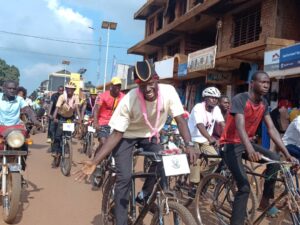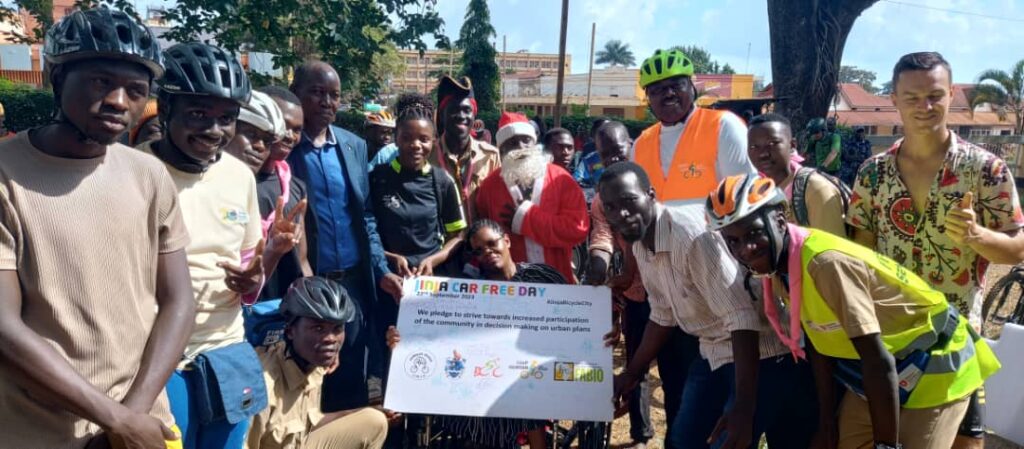Jinja city experienced a vibrant spectacle on Saturday as a group of cyclists took to the streets for a vital ride known as “Critical Mass.” The gentle-paced ride, covering over 8 kilometers, served a dual purpose – raising awareness about the significance of bicycles on roads and advocating for safer cycling conditions in the country.
The quarterly event, organized by Coop-Uganda, a nonprofit organization promoting access to education, healthcare, and income through the provision of bicycles, is part of a global movement where cyclists come together to assert their presence as non-motorized transport users and to underscore the benefits of cycling without the associated risks.
Harnest Nabihamba, Jinja city’s environmental officer and a participant in the ride, highlighted the environmental benefits of cycling. “This transport system is cost-effective and healthier, providing exercise for the body as one rides,” said Nabihamba, urging the public to embrace cycling for shorter distances.
He called on city planners to prioritize cycling spaces and walkways, facilitating the safe use of roads by non-motorized road users and pedestrians.

Leah Angom, the General Manager of Coop-Uganda, emphasized the need for the government to support cycling initiatives as a means to combat climate change resulting from pollution caused by motor vehicles. Angom proposed a reduction in taxes on imported bicycle materials to enhance accessibility, particularly for low-income earners with small enterprises.
“We donate bicycles to school-going children and village health teams (VHTs) to ease their duties in communities, and for every bicycle given, we ensure that ten tree seedlings are planted to contribute to environmental protection,” said Angom.
Michael Balaza, a resident of Jinja city and a participant in the Critical Mass event, advocated for the rights of cyclists, pointing out that the group often feels overlooked on roads. He shared the historical significance of bicycles as a means of transport for various functions, including introduction ceremonies.
Balaza emphasized the importance of individuals owning bicycles, especially in times like the COVID-19 era when public and private transportation faced restrictions. “Having a bicycle at home became crucial during the pandemic, providing a reliable means of transport when other options were limited,” he remarked.




